ABA Group Therapy
Discover our applied behaviour analysis (ABA) groups, designed to build communication, social and emotional regulation skills. With evening and weekend sessions at four convenient locations, we make support accessible for busy families.
Looking for something else this summer? Try our 4-week ABA Group Therapy! For ages 9-13: Early to Intermediate Communication and Social Stars For ages 14-18: Early to Intermediate Communication
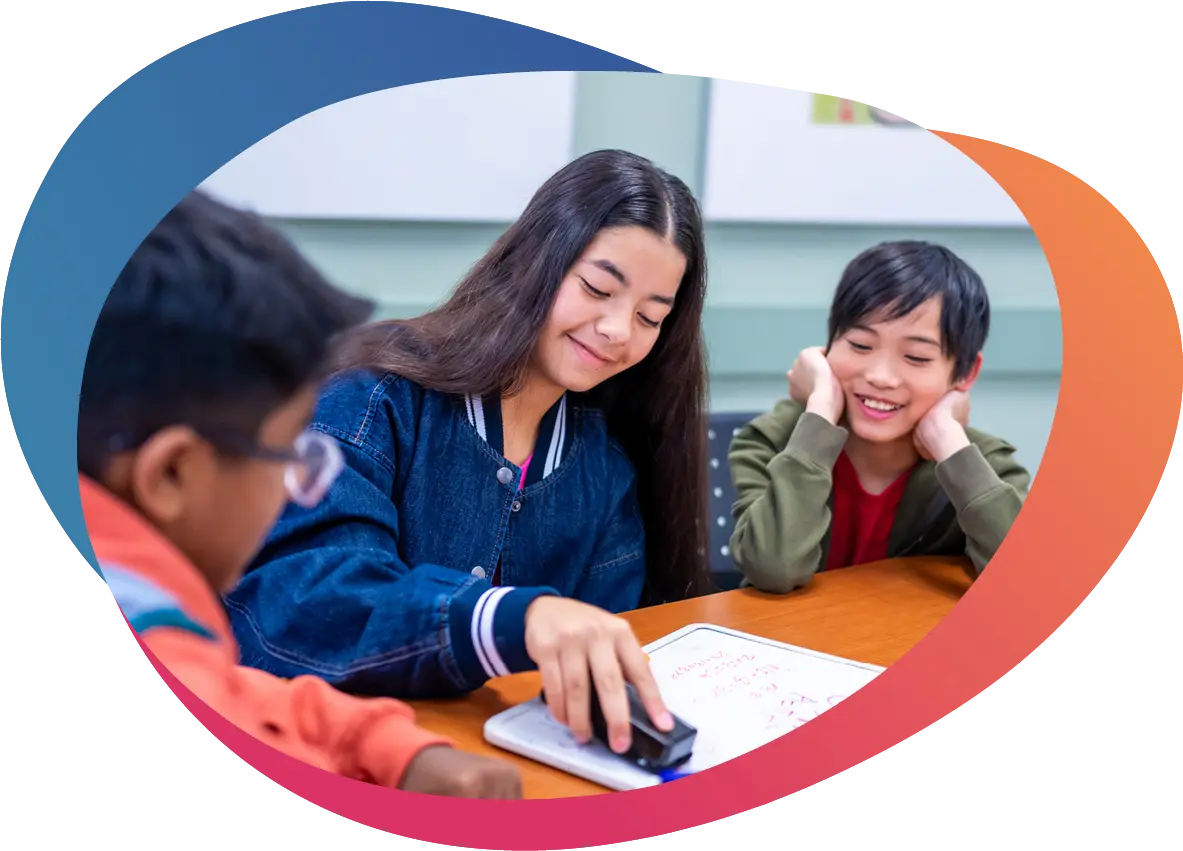
Select your child's age:
Ages 2-5
Step 3: Social Explorer
Social Stars
6 Weeks | 2 Days/Week | 2 Hrs/Day
Is your child speaking in two- or three-word sentences? Build early social skills like sharing and parallel play with goals like:
- Waving or saying “hi” and “bye” to others
- Asking peers for items and responding when asked
- Telling others to stop a behaviour they don't like
- Staying calm when a preferred item is removed
Ratio: 1 clinician to 3 children
Ages 6-9
Step 4 & 5: Interactive Communicators or Social Leaders
Conversation Club
6 Weeks | 2 Days/Week | 2 Hrs/Day
12 Weeks | 1 Day/Week | 2 Hrs/Day
Is your child comfortable chatting at home but hesitant to make back-and-forth conversations with peers? Build conversation confidence with goals like:
- Making comments during conversations
- Taking turns speaking, listening and watching for cues
- Talking about different topics
- Changing the subject if someone seems bored
Ratio: 1 clinician to 4 children
Step 2: Early Communicators
Early to Intermediate CommunicationAges 9-13
10 Weeks | 2 Days/Week | 2 Hrs/Day
12 Weeks | 2 Days/Week | 2 Hrs/Day
4 Weeks | 5 Days/Week | 2.5 Hrs/Day
Is your child starting to use single words or picture cards to communicate? Help them grow their vocabulary and start forming two-word sentences with goals like:
- Asking for 15-20 items using single words or picture cards
- Following two-step instructions
- Making requests using two-word phrases (e.g., “pour juice”)
- Getting others' attention by saying things like “look here”
Ratio: 1 clinician to 2 children
Step 3: Social Explorer
Social StarsAges 9-13
4 Weeks | 5 Days/Week | 2.5 Hrs/Day
Is your child speaking in two- or three-word sentences? Build early social skills like sharing and parallel play with goals like:
- Waving or saying “hi” and “bye” to others
- Asking peers for items and responding when asked
- Telling others to stop a behaviour they don't like
- Staying calm when a preferred item is removed
Ratio: 1 clinician to 3 children
Step 5: Social Leaders
Coding & Robotics
6 Weeks | 2 Days/Week | 2 Hrs/Day
12 Weeks | 1 Day/Week | 2 Hrs/Day
Is your child interested in beginner Scratch coding and robots? This program builds planning and problem-solving skills using fun technology, with goals like:
- Presenting a project to peers
- Solving problems independently by identifying issues and testing ideas
- Planning tasks by setting goals and following steps
- Working collaboratively while learning introductory Scratch coding skills
- Learning to program interactive robots to act and respond
Ratio: 1 clinician to 4 children
Ages 10-13
Step 2: Early Communicators
Early to Intermediate CommunicationAges 9-13
10 Weeks | 2 Days/Week | 2 Hrs/Day
12 Weeks | 2 Days/Week | 2 Hrs/Day
4 Weeks | 5 Days/Week | 2.5 Hrs/Day
Is your child starting to use single words or picture cards to communicate? Help them grow their vocabulary and start forming two-word sentences with goals like:
- Asking for 15-20 items using single words or picture cards
- Following two-step instructions
- Making requests using two-word phrases (e.g., “pour juice”)
- Getting others' attention by saying things like “look here”
Ratio: 1 clinician to 2 children
Step 3: Social Explorer
Social StarsAges 9-13
4 Weeks | 5 Days/Week | 2.5 Hrs/Day
Is your child speaking in two- or three-word sentences? Build early social skills like sharing and parallel play with goals like:
- Waving or saying “hi” and “bye” to others
- Asking peers for items and responding when asked
- Telling others to stop a behaviour they don't like
- Staying calm when a preferred item is removed
Ratio: 1 clinician to 3 children
Step 4 & 5: Interactive Communicators or Social Leaders
Boys Group
6 Weeks | 2 Days/Week | 2 Hrs/Day
Is your child ready to learn about their changing body? Dive into important conversations about fitness, puberty and consent with goals like:
- Understanding public and private places and behaviours
- Identifying private circles and members of their privacy circle
- Describing examples of good, bad and confusing touch
- Learning about private body parts, erections, and masturbation
- Maintain a healthy body through exercise, nutrition, relaxation, sleep
- Practicing personal hygiene and grooming routines
Ratio: 1 clinician to 3 children
Step 5: Social Leaders
Coding & Robotics
6 Weeks | 2 Days/Week | 2 Hrs/Day
Is your child interested in beginner Scratch coding and robots? This program builds planning and problem-solving skills using technology, with goals like:
- Presenting a project to peers
- Solving problems independently by identifying issues and testing ideas
- Planning tasks by setting goals and following steps
- Working collaboratively while learning introductory Scratch coding skills
- Learning to program interactive robots to act and respond
Ratio: 1 clinician to 4 children
Ages 14-18
Step 2: Early Communicators
Early to Intermediate Communication
12 Weeks | 2 Days/Week | 2 Hrs/Day
4 Weeks | 5 Days/Week | 2.5 Hrs/Day
Is your teen starting to use single words or picture cards to communicate? Help them grow their vocabulary and start forming two-word sentences with goals like:
- Asking for 15-20 items using single words or picture cards
- Following two-step instructions
- Making requests using two-word phrases (e.g., “pour juice”)
- Getting others' attention by saying things like “look here”
Ratio: 1 clinician to 2 children
Step 4 & 5: Interactive Communicators or Social Leaders
Take a Deep Breath
12 Weeks | 2 Days/Week | 2 Hrs/Day
Does your teen experience big emotions like worry or anger? Support your teen in navigating these feelings and build emotional resilience with goals like:
- Identifying emotions and understanding how their body reacts to anger
- Practice calming techniques
- Recognizing personal values and connecting behaviour to values
Ratio: 1 clinician to 2 children
Step 5: Social Leaders
Coding & Robotics
6 Weeks | 2 Days/Week | 2 Hrs/Day
12 Weeks | 1 Day/Week | 2 Hrs/Day
Is your teen interested in beginner Scratch coding and robots? This program builds planning and problem-solving skills using technology, with goals like:
- Presenting a project to peers
- Solving problems independently by identifying issues and testing ideas
- Planning tasks by setting goals and following steps
- Working collaboratively while learning introductory Scratch coding skills
- Learning to program interactive robots to act and respond
Ratio: 1 clinician to 4 teens
Frequently Asked Questions
Individual Services
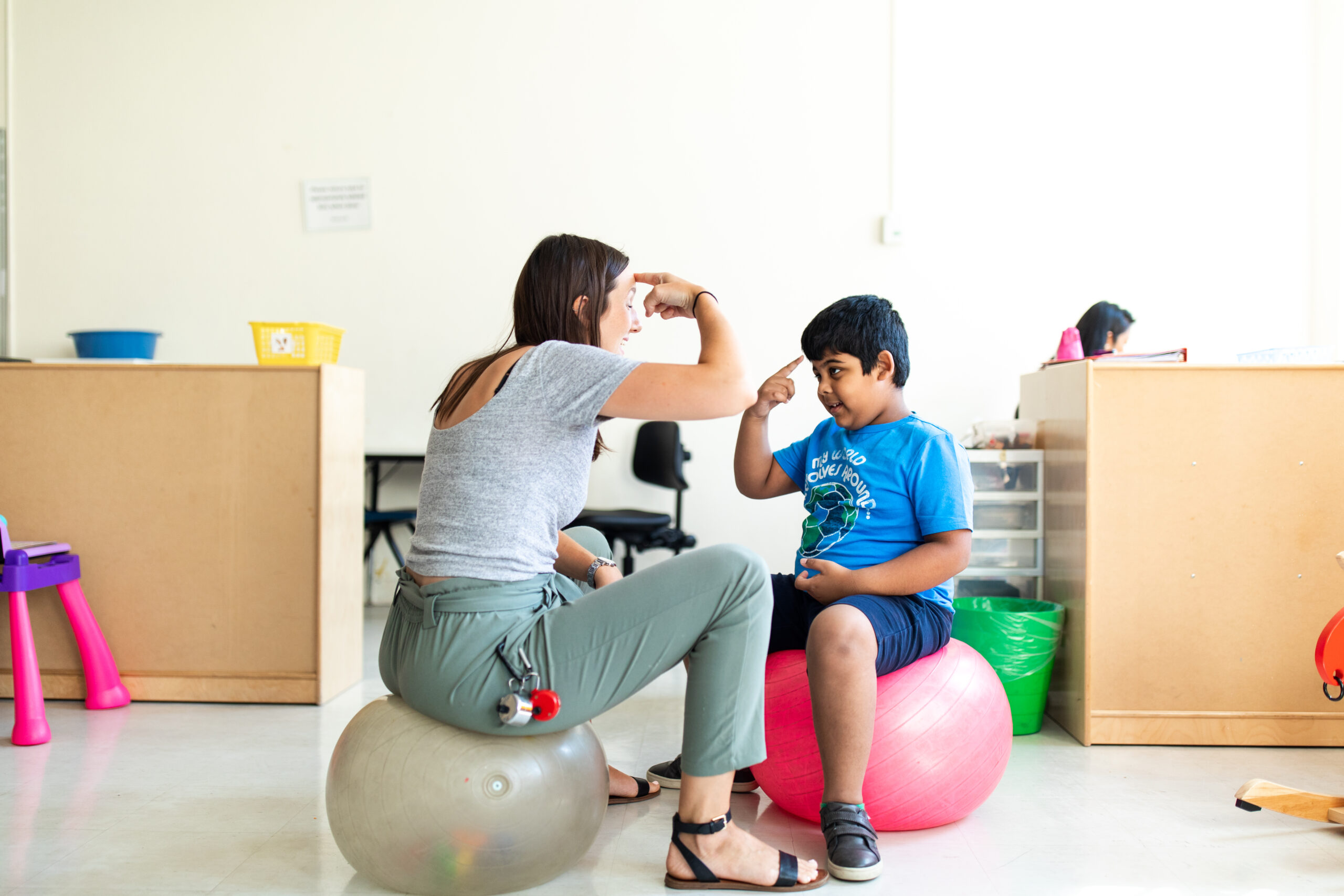
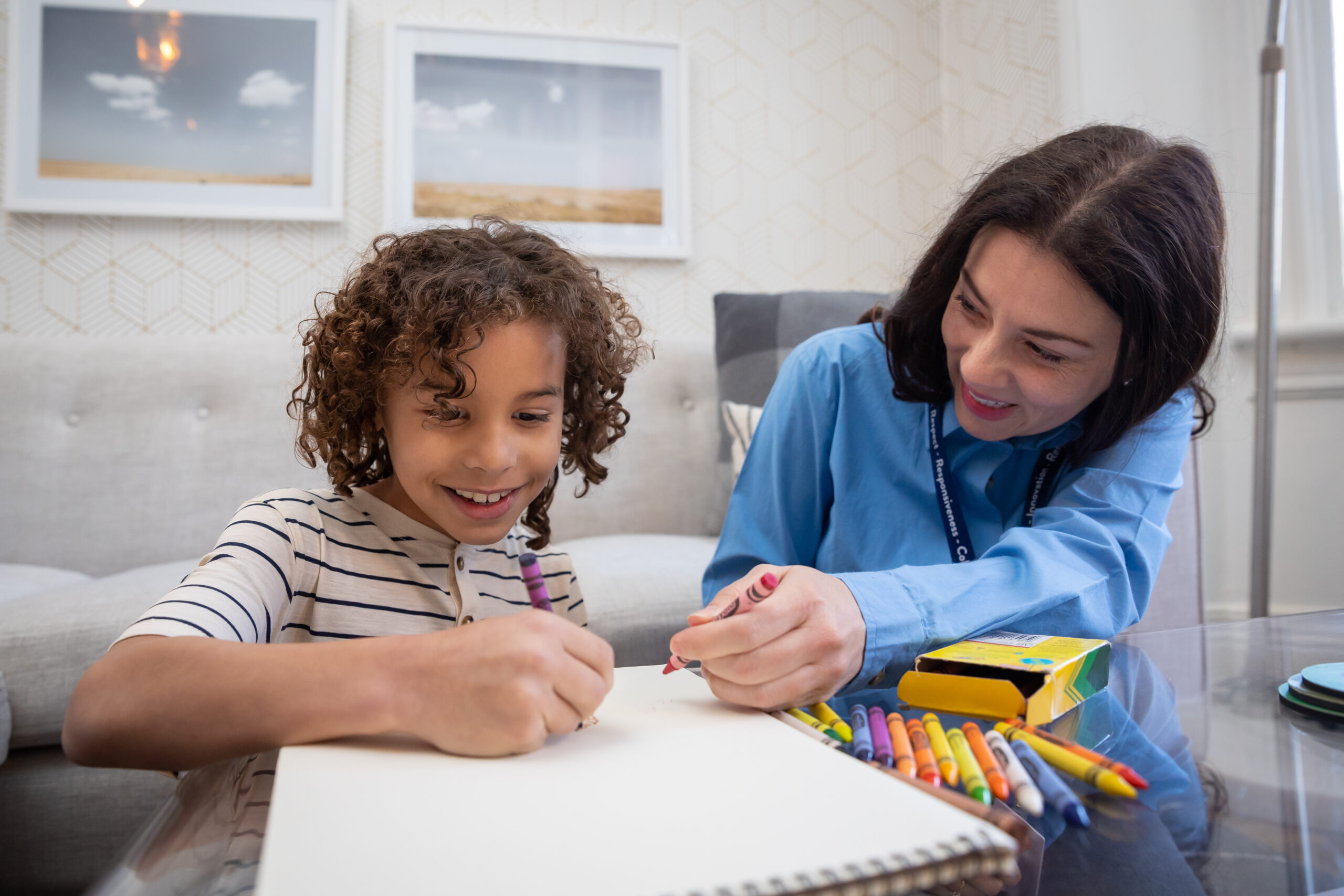
Not sure which service is right for you?
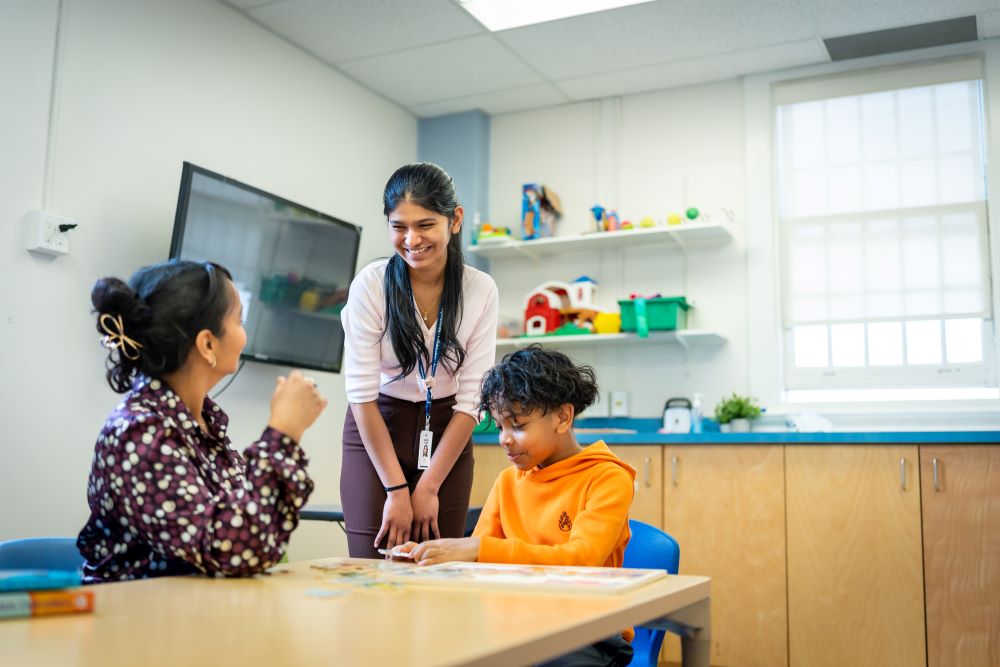
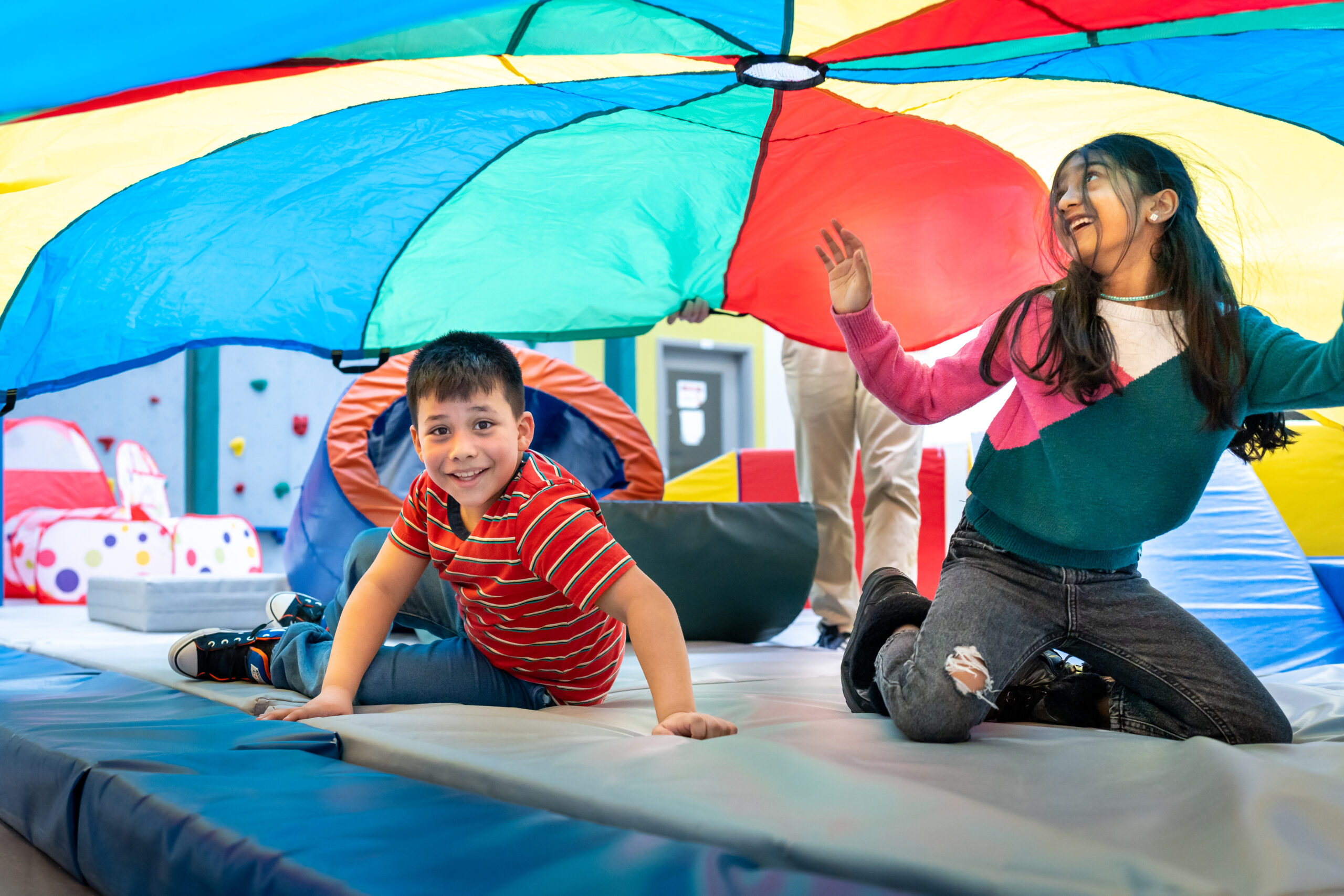
Respite Services
Provides families with fun, reliable, group-based care for their child or children.
By 2 months
By 6 months
Does the child?
By 9 months
Does the child?
By 12 months
Does the child?
By 18 months
Does the child?
By 2 years
Does the child?
By 30 months
Does the child?
By 3 years
Does the child?
By 4 years
Does the child?